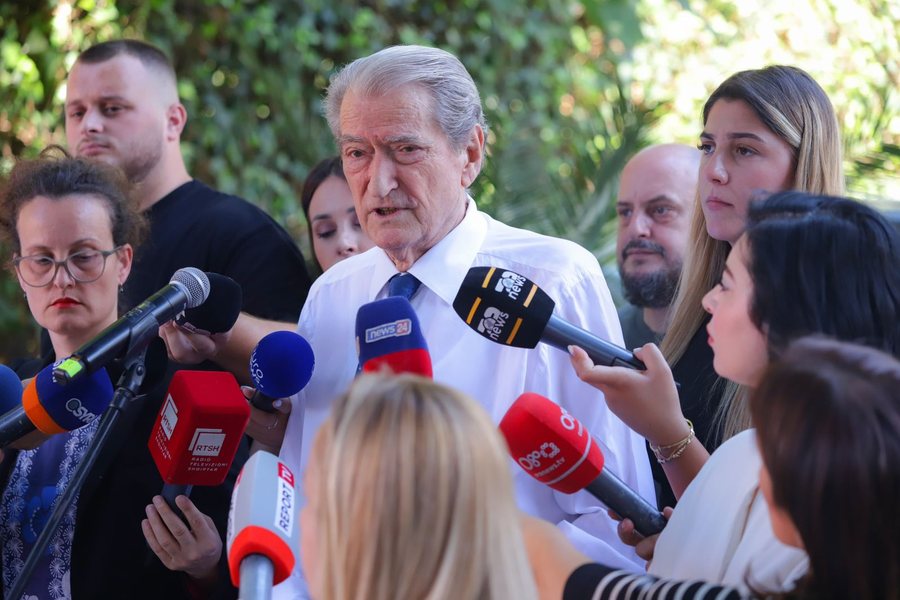In a surprising admission, Berisha labels 21 January a “state crime” but insists it was unintentional

For the first time, 14 years after four protesters were killed by Republic Guard gunfire during a Socialist-led demonstration, former Prime Minister Sali Berisha has surprised many by acknowledging that the killings of 21 January 2011 constituted a “state crime.” However, Berisha insists the tragedy was accidental, not deliberate.
Why is this important: Berisha’s rare concession comes days after SPAK Chief Altin Dumani declared the 21 January case a priority for the Special Prosecutor’s Office. As investigations focus on whether Berisha ordered the Guard of the Republic to fire on protesters demanding his resignation and that of his deputy Ilir Meta, his statement reframes long-standing debates over accountability and state violence.
Context: On 21 January 2011, the Guard of the Republic opened fire on a crowd protesting corruption revelations involving Berisha’s then-Deputy Prime Minister Ilir Meta. Four innocent protestors were killed and scores more were wounded. Despite repeated calls for justice, no senior official has been formally held responsible for the crime. SPAK itself tried to stay away from the case until a 2023 ruling by the European Court of Human Rights (ECHR) forced it to open an investigation.
Berisha, who appears before SPAK twice monthly over unrelated corruption charges, sought to distinguish intentional from unintentional “state crimes” in his comments to reporters:
“There is a classification of state crimes,” he said. “There are rules for when it is called an intentional state crime, for instance when the state takes someone who is innocent and executes them. When the state gives an order to do this or that—something it should never do. An unintentional state crime is when it happens by accident, through a ricochet, or while carrying out their duties, because the Guard was acting lawfully. The protestors were killed by the weapons of the state, but there was no intention to kill.”
He also claimed that no order was ever given for the Guard to shoot, echoing longstanding denials.
What else: In November 2023, the ECHR ordered Albania to identify the true perpetrators—those who commanded the Guard to fire on unarmed demonstrators. Strasbourg judges noted shell casings proved Guard members fired directly at the crowd, refuting the ricochet theory Berisha now advances.
SPAK’s formal indictment: On 15 July 2024, SPAK finally opened a formal criminal investigation into the January 21 killings. The charges include “murder under aggravated circumstances” against two or more persons, “abuse of office” and “obstruction of justice,” all allegedly committed in concert by Berisha (then prime minister), Lulzim Basha (then interior minister), and then commander of the Guard of the Republic Ndrea Prendi.
SPAK has faced significant criticism for the slow pace and silence surrounding its January 21 inquiry. Many believe the prosecutor’s office is reluctant to dig too deep into what remains the gravest crime by the Albanian state against its citizens since the fall of Communism. Critics insist SPAK must treat this case as its utmost priority.
SPAK Chief Dumani has publicly clashed with Berisha, who today attacked Dumani as “the highest-level public deceiver:
What’s next: The SPAK’s probe could lead to indictments of former and current officials. Observers say the case will test Albania’s resolve to hold leaders accountable for state violence.


